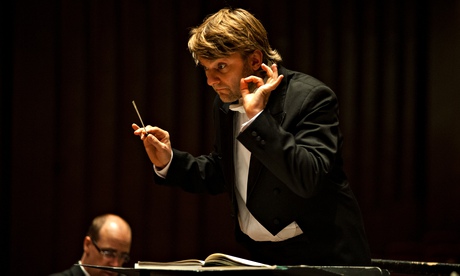
Strauss’s 150th anniversary year is getting a further boost as orchestras begin their new season. Kirill Karabits and his Bournemouth Symphony Orchestra chose the tone poem Also Sprach Zarathustra for this first concert of their Bristol series. Its massive instrumentation meant a BSO lineup far in excess of the usual complement of players, in itself a cause for celebration, and the sheer resonance of the opening sunrise seemed to fill them with as much delight as it did the audience.
Yet having achieved that effulgent blaze, the test for the conductor is only just beginning, and Karabits demonstrated once again his acute feel for the interplay of texture and harmony. He coaxed some ecstatic playing from his strings and the darkly atmospheric colours he conjured in the final Nachtwandererlied lent the right degree of questioning to balance the seeming optimism of sunrise.
One of Karabits’s strengths is in communicating, finding physical gestures that not only express the effect he wants produced but also signal how to listen at a particular moment. In just this way, Karabits brought a buoyancy to Prokofiev’s Classical Symphony, underlining its humour and rhythmic bite, and revealing details too often lost in the melee.
Karabits’s own scholarly bent clearly suited the challenge of accompanying the soloist and academic Robert Levin in Beethoven’s First Piano Concerto. Playing the usual concert grand, Levin’s application of period-performance thinking produced a crisp rather than beautiful sound, mannered and a bit manic. It’s hard to resist the feeling that in the matter of improvisation, his calling card, the results say more about Levin than about Beethoven. At the end of the first movement, and its whirlwind of a cadenza, he could not quite contain his enthusiasm, turning to the audience to announce “I made that up!” – as if it weren’t apparent enough.

